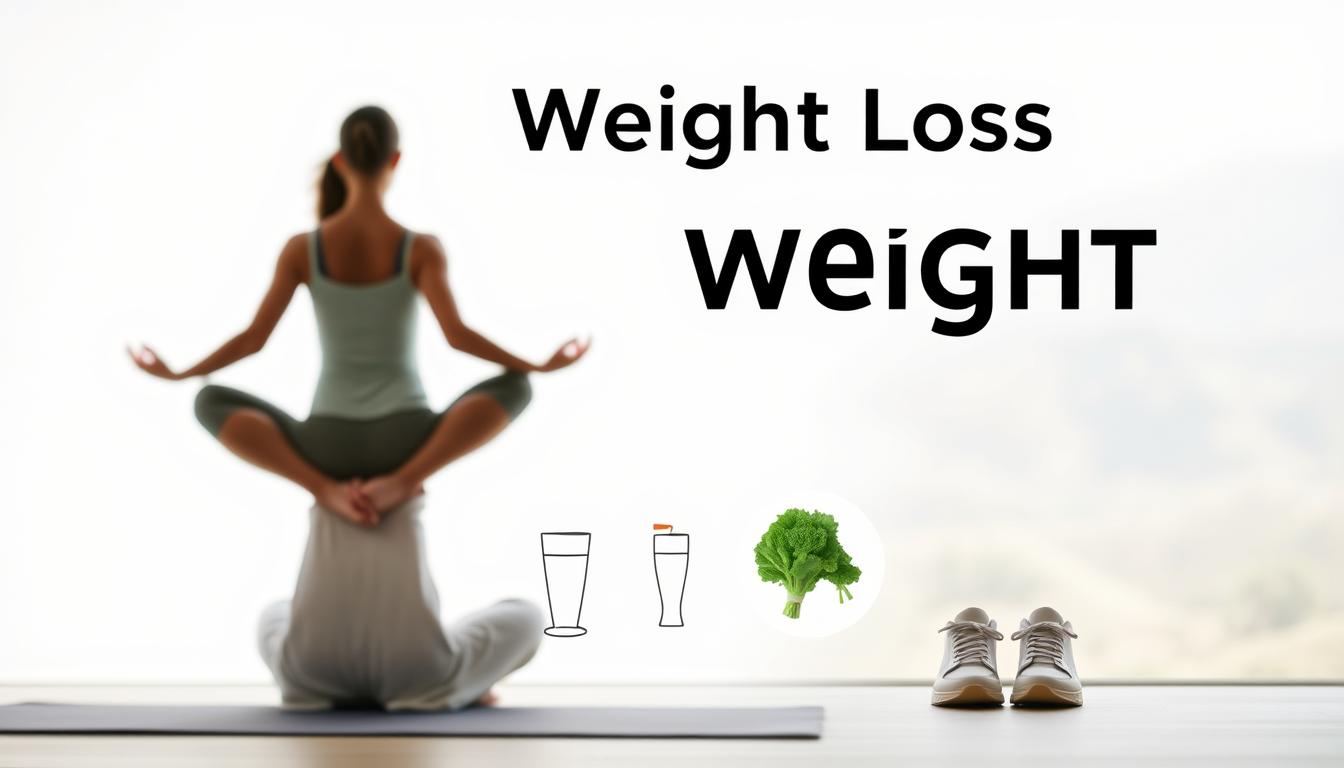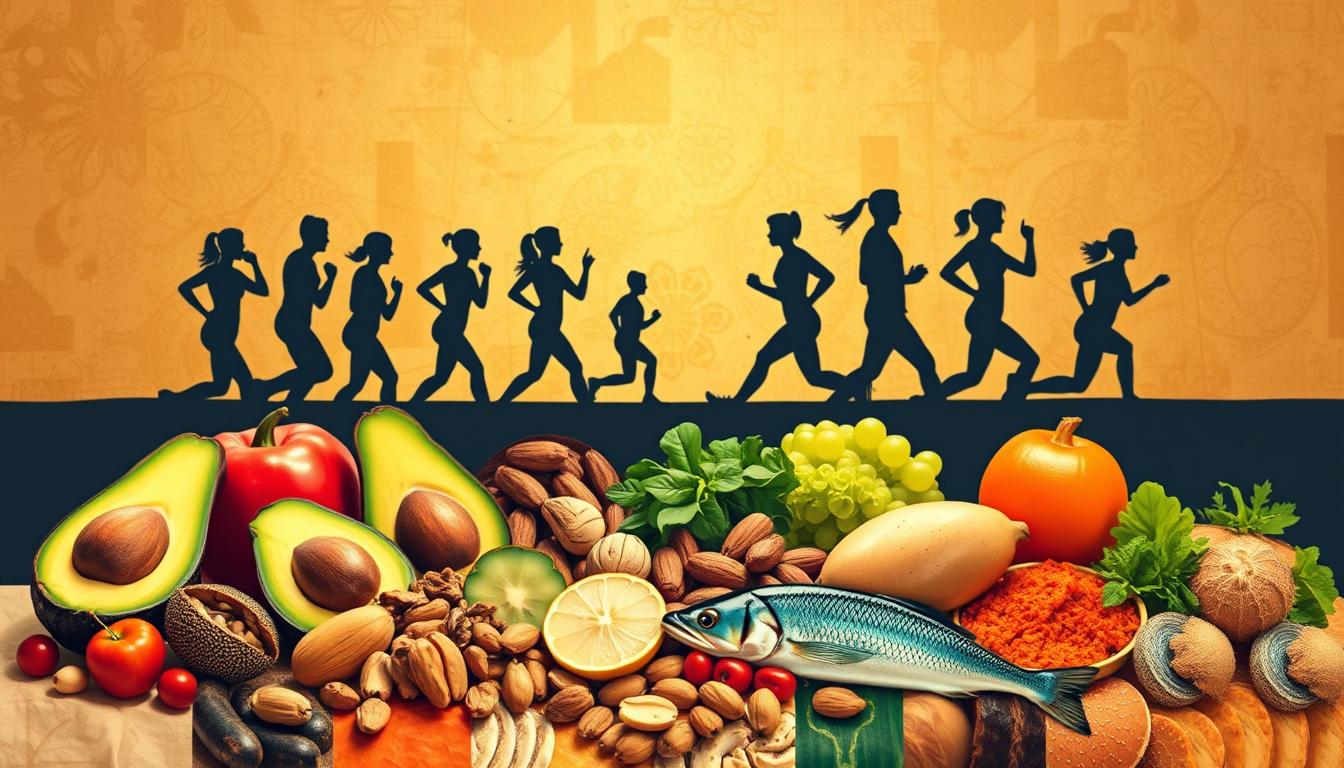Did you know Americans spend over $78 billion yearly on fitness products, yet obesity rates keep climbing? This gap between effort and results isn’t your fault. The wellness industry thrives on oversimplified solutions that ignore real science. “Quick fixes sell better than truth,” admits registered dietitian Sarah Woodruff, “but they leave people stuck in cycles of frustration.”
From “carbs are evil” claims to obsessive calorie counting, harmful narratives about body goals dominate social feeds. Dr. Marcus Franklin, a metabolism researcher, warns: “Misinformation isn’t just confusing—it actively derails progress.” But what if shaking these false beliefs could help you see lasting change?
This isn’t about guilt-tripping or extreme diets. We’re cutting through the noise to reveal why popular assumptions fail most people. You’ll discover how sustainable habits outperform rigid rules and why your mindset matters more than any magic pill. Ready to rethink everything you’ve been told?
Key Takeaways
- The weight loss industry profits from short-term solutions that rarely work long-term
- Extreme diet rules often backfire, leading to metabolic slowdown and rebound weight gain
- Sleep and stress management impact results as much as food choices
- Fitness trackers can create unhealthy fixations on numbers instead of well-being
- Genetic factors play a bigger role than most programs acknowledge
Why Weight Loss Myths Persist (And Why They’re Dangerous)
Ever wonder why old weight loss tips keep coming back? It’s because of profit-driven marketing and our desire for quick fixes. Companies like breakfast cereal makers funded studies saying breakfast is key. And supplement brands sell magic pills that promise easy weight loss.
Your body isn’t just about counting calories. It’s a complex system with hormones like leptin and insulin controlling hunger and fat. Stress hormones like cortisol can also mess with your weight loss plans. Crash diets can slow down your metabolism, making it harder to lose weight for good.
Myths stick around for three main reasons:
- Confirmation bias: We remember when a fad diet worked
- Social media echo chambers: Viral posts win over science
- Shame cycles: “If I failed, the problem must be me”
“Weight stigma creates more health risks than obesity itself. Compassion beats shame every time.”
Yo-yo dieting is bad for your heart and muscles. It makes you lose muscle mass. The “calories in, calories out” myth doesn’t consider how different foods affect hunger hormones. For example, 100 calories of broccoli is better for your blood sugar than 100 calories of soda.
When you see a “groundbreaking” weight loss claim, think twice. Ask who benefits if you believe it. And what biological processes it ignores. Real change happens when you work with your body, not against it.
5 Weight Loss Myths That Are Holding You Back
Let’s clear up five weight loss myths that are holding you back. These common misconceptions keep people stuck in frustration instead of achieving real results. Knowing what doesn’t work might be your key to success.
1. “Extreme Calorie Restriction Is the Fastest Way to Lose Weight”
Why It’s Wrong
Research from the University of Illinois shows cutting calories too low can put your body in starvation mode. Instead of losing fat, you might lose muscle. The initial weight loss is often just water.
What to Do Instead
Focus on nutrient density instead of cutting calories too much. Dr. David Ludwig suggests these swaps:
- Replace rice cakes with apple slices + peanut butter
- Choose full-fat yogurt over fat-free versions
- Opt for salmon instead of chicken breast twice weekly
2. “All Calories Are Created Equal”
The Quality vs Quantity Trap
Harvard research found that 100 calories of soda raises insulin levels 3x faster than 100 calories of almonds. This means some calories are riskier than others.
Smart Nutrition Swaps
| Instead Of… | Try… | Calorie Savings |
|---|---|---|
| Bagel with cream cheese | Avocado toast on rye | 85 calories |
| Sweetened yogurt | Greek yogurt + berries | 120 calories |
3. “Carbs Are the Enemy”
Carbohydrate Misconceptions
Your brain needs 130g carbs daily just to function. The problem is processing. Refined carbs (like white bread) are different from complex ones (like quinoa). Even places like Chipotle offer better choices – like swapping white rice for cauliflower rice!
Healthy Carb Strategies
Time your carbs wisely:
- Eat 75% of daily carbs before 3 PM
- Pair carbs with protein (ex: eggs + toast)
- Try carb cycling – 3 low-carb days/week
4. “You Can Out-Exercise a Bad Diet”
The 80/20 Reality Check
University of Arkansas research found people eat 30% more calories after working out, thinking they “earned it.” A 3-mile run burns 300 calories – less than one muffin!
Creating Effective Synergy
Sync meals with workouts:
- Drink 16oz water before meals
- Eat protein within 45 minutes post-workout
- Prep portioned snacks (ex: 10 almonds + cheese stick)
5. “Supplements Can Replace Hard Work”
The Truth About Magic Pills
The $60B supplement industry thrives on false promises. Most fat-burners contain caffeine and diuretics – temporary tricks, not solutions.
Evidence-Based Approaches
Only these aids have real science:
- Whey protein (20g post-workout)
- Omega-3s (1,200mg daily)
- Vitamin D (if deficient)
The Truth About Sustainable Weight Loss
Let’s cut through the noise: sustainable weight loss isn’t about extremes—it’s about balance. Research from Dr. Krista Varady shows intermittent fasting works best when paired with flexible eating patterns, not starvation. Virgie Tovar’s body positivity principles remind us that health looks different for everyone.

- Track energy levels instead of obsessing over calories
- Celebrate non-scale victories like better sleep or mood
- Choose providers who prioritize metabolic health over BMI
“Focus on how you feel, not just how you look. Progress isn’t always measured in pounds.”
Your Action Plan
| Strategy | Implementation | Why It Works |
|---|---|---|
| Time-Restricted Eating | 12-hour eating window | Aligns with natural circadian rhythms |
| Stress Management | 10-minute daily breathwork | Reduces cortisol spikes |
Notice what’s missing? Obsessive tracking and guilt-based workouts. Instead, try these weight loss tips rooted in science:
- Eat protein-rich breakfasts to curb afternoon cravings
- Walk 15 minutes after meals for better glucose control
- Practice mindful eating using the “hunger-fullness scale”
Remember these weight loss facts: Cortisol from chronic stress can slow metabolism by 15%, while consistent sleep improves fat loss by 33%. Small changes create big results over time.
Conclusion
Knowing the truth about health is powerful. Dr. Yoni Freedhoff says, “Sustainable weight loss comes from changes that feel doable, not hard.” Start by tracking your meals for a week with free tools like MyFitnessPal or Cronometer. Seeing patterns helps you understand your habits better.
Before your next doctor’s visit, prepare three questions. Ask, “How does my metabolic health compare to others my age?” “Which biomarkers should we monitor?” “What non-scale victories matter most?” This way, you turn vague advice into clear, data-backed steps.
Look into resources like Linda Bacon’s Health at Every Size movement or Abbey Sharp’s intuitive eating guides. These sources focus on nourishment, not punishment. They help you build lasting energy-boosting habits, not quick fixes.
Your body needs care that lasts, not just for the next weigh-in. Instead of labeling foods as “good” or “bad,” ask yourself, “How does this meal make me feel?” “When do I enjoy moving the most?” Small changes lead to big results over time. Bookmark this article, share it with others facing similar challenges, and remember, every step towards clarity is important.







